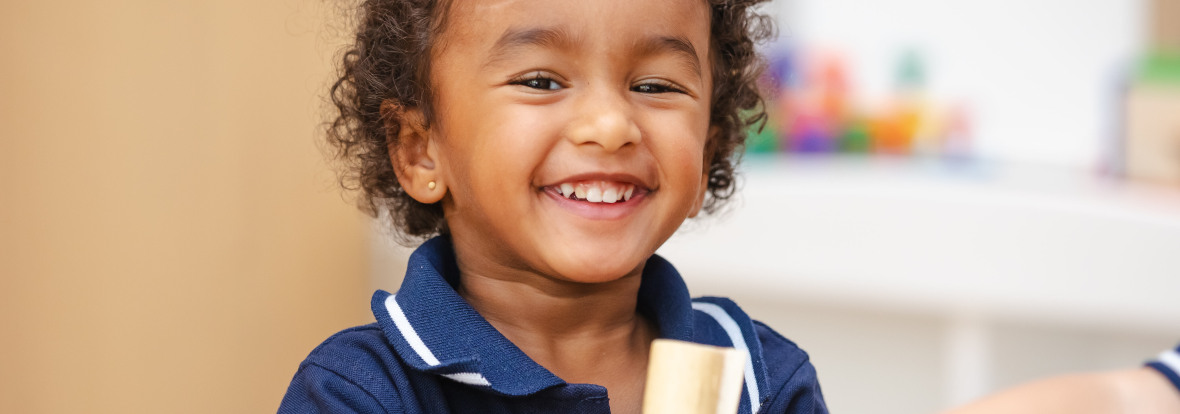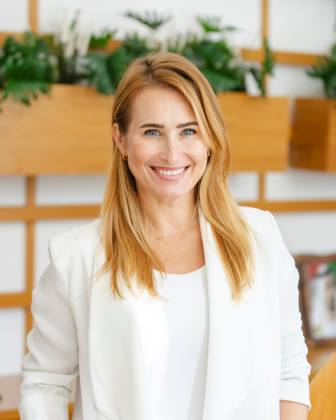What are mistakes? They are not failures; they are learning opportunities—stepping stones to new discoveries. When a child makes a "mistake," they are not failing; they are identifying their next step and discovering what they need to learn next. They don't need a formal assessment to tell them—they experience it firsthand.
Yet, as adults, we have been conditioned to fear mistakes. Why? Because we grew up being told that mistakes were wrong, something to be avoided, something to be ashamed of. We were raised in a world where getting things "right" mattered more than exploring, and where perfection was valued over progress. But we are breaking that cycle.
At Blossom, we embrace mistakes. There is no "right" or "wrong"—only experiences and their outcomes. Instead of telling children what they did incorrectly, we help them reflect and encourage their natural curiosity. If a child is not happy with the result of their actions, we guide them through self-discovery:
- Why am I not satisfied with this?
- What was I trying to achieve?
- What could I do differently next time?
- What tools or skills do I need to improve?
Mistakes are not something to be fixed or hidden. They are opportunities for problem-solving, critical thinking, and cognitive growth. When children feel safe to experiment without fear of being "wrong," they become resilient, confident, and independent learners.
Even the smallest moments—like spilling water—become opportunities for meaningful learning. Instead of scolding, an educator will guide a child through an investigation:
- What happened?
- Why did it happen?
- How do I feel about it?
- What can I do now?
- How can I prevent this next time?
Throughout this process, the educator remains calm and supportive—no frustration, no disappointment, just curiosity and guidance.
It is crucial to comfort children during any incident, even when the action was intentional. We must remember: these little humans have only been on this planet for a few years. They are
learning, not just about actions and consequences, but about how to feel about themselves when they make a mistake. These early experiences shape their confidence, resilience, and ability to handle challenges later in life.
How As Parents Can We Support This Mindset?
First, understand your child. Let go of rigid expectations—the ones we unconsciously place on them, shaped by our own childhoods and fears. Often, we imagine how we want our child to behave, how we believe they should act, and we worry about what others will think of us as parents. But in reality, the only thing that matters is what your child thinks of you and how you make them feel.
Creating a trusting, judgment-free environment is essential. When children are reprimanded for mistakes, accidents, or failures, they begin to fear making mistakes altogether. This fear leads to dishonesty, insecurity, frustration, and guilt. They may start to lie about their actions or avoid trying new things altogether.
Children are incredibly perceptive. They don’t just hear your words—they absorb your tone, your sighs, your expressions, and the energy in your response. They feel whether they are being judged or supported.
The first five years of life are the most critical. While many parents focus on primary and secondary school, the real foundation is built long before that. And just like with any structure, if the foundation is weak, the rest will be unstable.
Birth to five years is a magical, powerful stage of development, shaping not just a child’s cognitive abilities, but also their self-esteem, emotional regulation, and subconscious beliefs about themselves and the world. The way we react to their mistakes today will directly affect their confidence, decision-making skills, ability to take risks, leadership potential, and interpersonal relationships in the future.
So, next time your child breaks a vase, spills their drink, or pushes a friend—pause. Take a deep breath. Ask yourself: How did I feel when I was told off for making a mistake as a child?
This is our chance to rewrite that experience for the next generation. Let’s raise children who don’t fear mistakes but embrace them as part of their journey.






